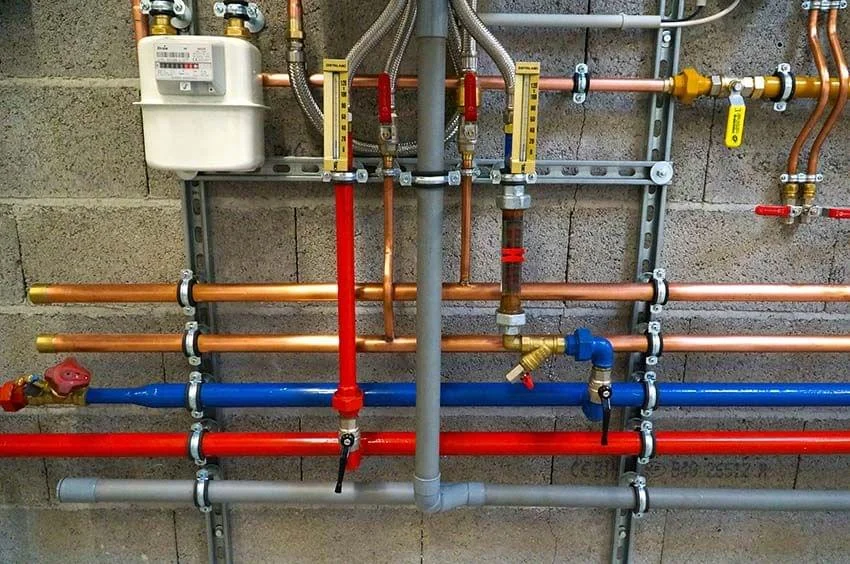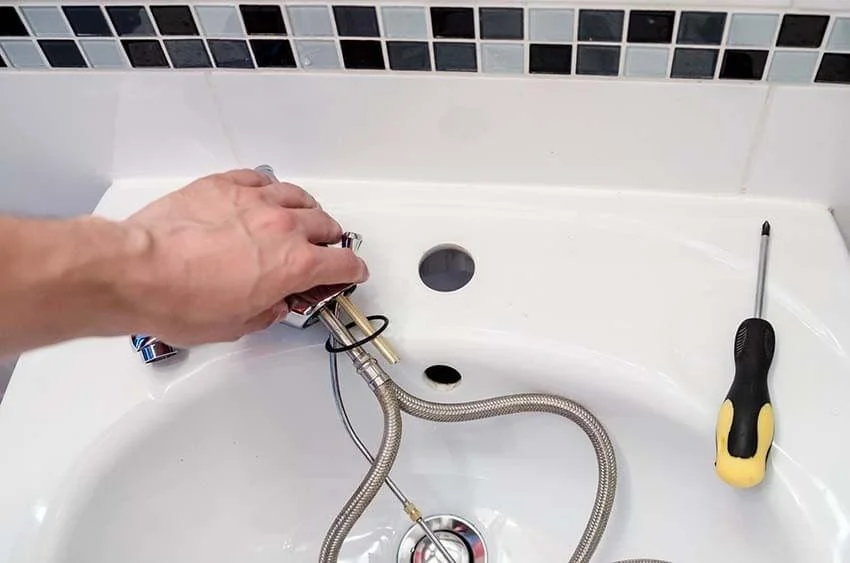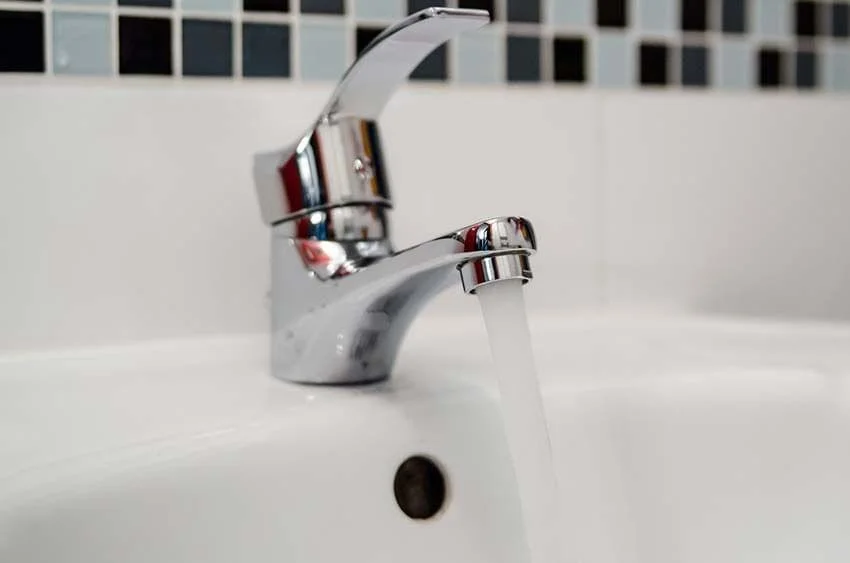Discover Green Plumbing Practices to Conserve Water and Reduce Your Environmental Impact in Honolulu
Honolulu is a paradise known for its beautiful landscapes and warm climate. However, living in such an environment comes with a responsibility to protect and preserve the natural beauty around us. One way to do this is by implementing eco-friendly plumbing solutions in your home. Pineapple Plumbing is dedicated to helping Honolulu residents adopt sustainable plumbing practices that conserve water and reduce environmental impact.
Understanding Eco-Friendly Plumbing
Eco-friendly plumbing focuses on reducing water consumption, minimizing waste, and utilizing sustainable materials. By making a few changes to your plumbing system, you can significantly lower your water bills and contribute to the conservation of Hawaii's precious resources.
Benefits of Eco-Friendly Plumbing
- Water Conservation: Reduces water wastage and promotes efficient water use.
- Energy Efficiency: Lowers energy consumption for heating water.
- Reduced Environmental Impact: Decreases the carbon footprint associated with plumbing activities.
- Cost Savings: Lowers utility bills over time.

Water-Saving Fixtures for Honolulu Homes
Installing water-saving fixtures is one of the simplest and most effective ways to reduce water usage. Pineapple Plumbing recommends the following fixtures for your Honolulu home:
Low-Flow Showerheads and Faucets
Low-flow showerheads and faucets are designed to reduce water flow without compromising performance. These fixtures can cut water usage by up to 60%.
- Aerators: Attach to faucets to reduce water flow while maintaining pressure.
- Low-Flow Showerheads: Use less water per minute than traditional showerheads.
Dual-Flush Toilets
Dual-flush toilets offer two flushing options: a low-volume flush for liquid waste and a higher-volume flush for solid waste. This can save thousands of gallons of water per year.
- Half-Flush: Uses around 0.8 gallons of water.
- Full-Flush: Uses about 1.6 gallons of water.
High-Efficiency Washing Machines
Modern washing machines are designed to use less water and energy. High-efficiency models can save a significant amount of water per load compared to older models.
- Front-Loading Machines: Use less water and energy than top-loading machines.
- Water-Saving Settings: Optimize water use based on the load size and type.
Water-Saving Dishwashers
Like washing machines, modern dishwashers are built to conserve water and energy. Look for models with the ENERGY STAR label, which indicates superior efficiency.
- Soil Sensors: Adjust water use based on the cleanliness of the dishes.
- Efficient Cycles: Use less water and energy while still delivering clean dishes.
Sustainable Plumbing Materials
Using sustainable materials in your plumbing system can further reduce your environmental impact. Pineapple Plumbing suggests the following options:
PEX Piping
PEX (cross-linked polyethylene) piping is a durable and flexible alternative to traditional copper pipes. It is more resistant to temperature changes and requires fewer fittings, reducing the risk of leaks.
Recycled and Biodegradable Materials
Whenever possible, opt for plumbing materials made from recycled or biodegradable sources. This includes using recycled metal for fixtures and biodegradable sealants.
Non-Toxic Sealants and Adhesives
Traditional plumbing sealants and adhesives often contain harmful chemicals that can leach into the water supply. Non-toxic alternatives are safer for both the environment and your health.
- Silicone-Based Sealants: Provide a strong, flexible seal without harmful chemicals.
- Natural Adhesives: Use plant-based ingredients to create strong bonds without toxic fumes.
Greywater Recycling Systems
Greywater recycling involves reusing water from sinks, showers, and washing machines for non-potable purposes such as irrigation and toilet flushing. Installing a greywater system can significantly reduce your household's water consumption.
Benefits of Greywater Systems
- Water Conservation: Reduces the demand for fresh water.
- Cost Savings: Lowers water bills by reusing greywater.
- Environmental Protection: Decreases the strain on local water resources.
Components of a Greywater System
- Collection Pipes: Direct greywater from sinks, showers, and washing machines to a storage tank.
- Storage Tank: Holds greywater until it is needed for irrigation or toilet flushing.
- Filtration System: Removes impurities from the greywater to make it safe for reuse.
- Distribution System: Delivers greywater to the appropriate fixtures or irrigation system.
Installing a Greywater System in Your Honolulu Home
- Assess Your Water Usage: Determine which sources of greywater can be reused and how much water you can save.
- Design the System: Work with Pineapple Plumbing to create a greywater system tailored to your home’s layout and needs.
- Install Collection and Distribution Pipes: Ensure proper routing of greywater from sources to storage and reuse points.
- Set Up Filtration and Storage: Install the necessary filtration systems and storage tanks to keep the greywater safe for reuse.
- Test and Maintain: Regularly check the system for efficiency and make any necessary adjustments or repairs.

Rainwater Harvesting in Honolulu
Rainwater harvesting is an excellent way to make use of the abundant rainfall in Honolulu. By collecting and storing rainwater, you can use it for irrigation, toilet flushing, and even washing clothes.
How to Set Up a Rainwater Harvesting System
- Install Gutters and Downspouts: Direct rainwater from your roof to a storage tank.
- Choose a Storage Tank: Select a tank size based on your water usage needs.
- Filtration System: Ensure the water is clean by installing a filtration system.
- Distribution System: Set up a distribution system to use the harvested rainwater effectively.
Benefits of Rainwater Harvesting
- Water Conservation: Reduces reliance on municipal water supplies.
- Cost Savings: Lowers water bills by supplementing your water supply with rainwater.
- Environmental Impact: Decreases stormwater runoff and the associated erosion and pollution.
Maintaining Your Rainwater Harvesting System
- Regular Cleaning: Keep gutters, downspouts, and storage tanks clean to prevent debris buildup.
- Filter Replacement: Replace filtration system components as needed to ensure clean water.
- System Checks: Periodically inspect the entire system for leaks, blockages, and other issues.
Solar Water Heaters
Solar water heaters use the sun's energy to heat water, reducing reliance on traditional energy sources. This is particularly
effective in sunny locations like Honolulu.
Types of Solar Water Heaters
- Active Systems: Use pumps to circulate water through solar collectors.
- Passive Systems: Rely on natural convection to move water through the system.
Benefits of Solar Water Heaters
- Energy Savings: Reduces electricity or gas consumption for heating water.
- Environmental Impact: Lowers greenhouse gas emissions.
- Cost-Effective: Provides long-term savings on energy bills.
Installing a Solar Water Heater in Honolulu
- Evaluate Your Home’s Suitability: Assess your roof’s orientation and exposure to sunlight.
- Select a System Type: Choose between active and passive systems based on your needs and budget.
- Install Solar Collectors: Position the collectors on your roof to maximize sun exposure.
- Connect to Your Plumbing System: Integrate the solar heater with your existing water heating system.
- Monitor and Maintain: Regularly check the system for performance and perform maintenance as needed.
Pineapple Plumbing
Leak Detection and Prevention
Leaks can waste a significant amount of water over time. Implementing leak detection and prevention measures can help conserve water and reduce damage to your home.
Common Leak Detection Methods
- Water Meter Check: Monitor your water meter for unexpected increases.
- Dye Test: Add food coloring to your toilet tank to check for leaks into the bowl.
- Regular Inspections: Schedule routine inspections with Pineapple Plumbing to identify and fix leaks promptly.
Preventive Measures to Avoid Leaks
- Quality Installation: Ensure all plumbing installations are done by qualified professionals like Pineapple Plumbing.
- Regular Maintenance: Keep your plumbing system in good condition with regular check-ups.
- Use Quality Materials: Opt for durable and sustainable materials that are less prone to leaks.

Educating Honolulu Residents on Water Conservation
Raising awareness about water conservation is crucial for ensuring sustainable water use in Honolulu. Pineapple Plumbing is committed to educating the community through workshops, online resources, and community events.
Tips for Educating Your Family and Community
- Workshops and Seminars: Host or attend workshops on water conservation.
- Educational Materials: Distribute flyers, brochures, and online content.
- Community Involvement: Engage with local schools, businesses, and organizations to promote sustainable practices.
Simple Water Conservation Tips for Homeowners
- Fix Leaks Promptly: Even small leaks can waste a lot of water over time.
- Use Water-Saving Fixtures: Install low-flow showerheads, faucets, and dual-flush toilets.
- Be Mindful of Water Use: Turn off the tap while brushing your teeth and take shorter showers.
- Water Plants Wisely: Water your garden during the early morning or late evening to minimize evaporation.
Conclusion
Adopting eco-friendly plumbing solutions in your Honolulu home is a vital step toward conserving water and protecting the environment. Pineapple Plumbing is here to assist you with implementing sustainable practices, from installing water-saving fixtures to setting up greywater recycling systems. By making these changes, you can enjoy the benefits of lower utility bills, reduced environmental impact, and a greener, more sustainable lifestyle.
For more information or to schedule a consultation, contact Pineapple Plumbing today. Let's work together to make Honolulu a model for sustainable living!
Frequently Asked Questions
1. What are the benefits of installing low-flow showerheads and faucets in my Honolulu home?
Low-flow showerheads and faucets can significantly reduce water usage without compromising performance. These fixtures can cut water consumption by up to 60%, leading to lower water bills and conserving Honolulu’s precious water resources.
2. How do dual-flush toilets work, and how can they save water?
Dual-flush toilets have two flushing options: a low-volume flush for liquid waste and a higher-volume flush for solid waste. This system can save thousands of gallons of water annually by using the appropriate amount of water for each type of waste.
3. What is PEX piping, and why is it considered eco-friendly?
PEX (cross-linked polyethylene) piping is a flexible, durable alternative to traditional copper pipes. It is more resistant to temperature changes and requires fewer fittings, reducing the risk of leaks. PEX piping’s longevity and efficiency make it an eco-friendly choice.
4. Can greywater recycling systems be installed in existing homes, or are they only for new constructions?
Greywater recycling systems can be installed in both existing homes and new constructions. Pineapple Plumbing can assess your current plumbing setup and design a greywater system tailored to your home’s layout and water usage needs.
5. What are the primary uses of harvested rainwater in a household setting?
Harvested rainwater can be used for various non-potable purposes, including irrigation, toilet flushing, and washing clothes. This helps reduce reliance on municipal water supplies and lowers your water bills.
6. Are solar water heaters effective in Honolulu’s climate?
Yes, solar water heaters are highly effective in Honolulu’s sunny climate. They use the sun’s energy to heat water, reducing reliance on traditional energy sources and lowering your energy bills.
7. How often should I have my plumbing system inspected for leaks?
It’s recommended to have your plumbing system inspected for leaks at least once a year. Regular inspections can identify and address small leaks before they become major problems, helping conserve water and prevent damage to your home.
8. What are the environmental benefits of using recycled and biodegradable plumbing materials?
Using recycled and biodegradable plumbing materials reduces the demand for new resources and decreases the amount of waste sent to landfills. These materials are also often less harmful to the environment, contributing to a greener home.
9. How can Pineapple Plumbing help me educate my family and community about water conservation?
Pineapple Plumbing offers workshops, seminars, and educational materials on water conservation. We also engage with local schools, businesses, and organizations to promote sustainable practices. Contact us to learn more about our educational initiatives.
10. What are some simple water conservation tips I can implement immediately?
Here are a few simple water conservation tips you can start using today:
- Fix leaks promptly to prevent water wastage.
- Install water-saving fixtures like low-flow showerheads, faucets, and dual-flush toilets.
- Be mindful of your water use by turning off the tap while brushing your teeth and taking shorter showers.
- Water your plants during the early morning or late evening to minimize evaporation.